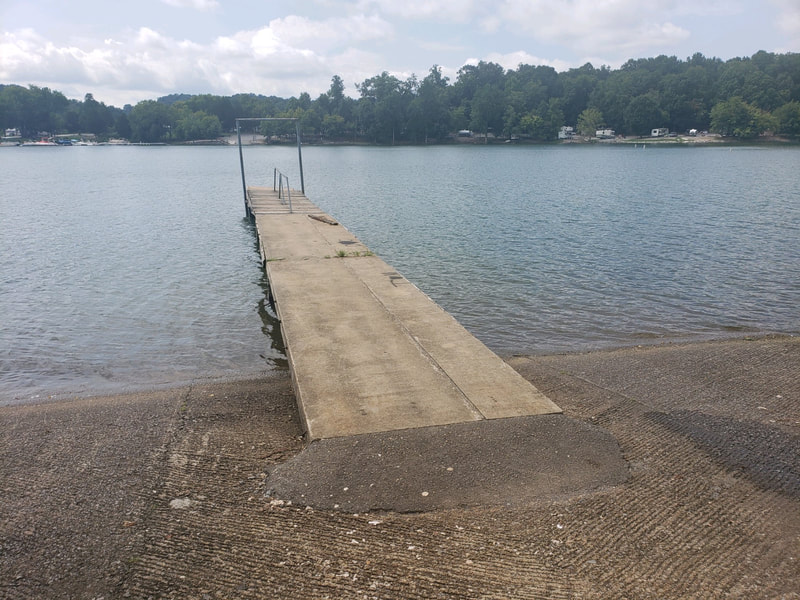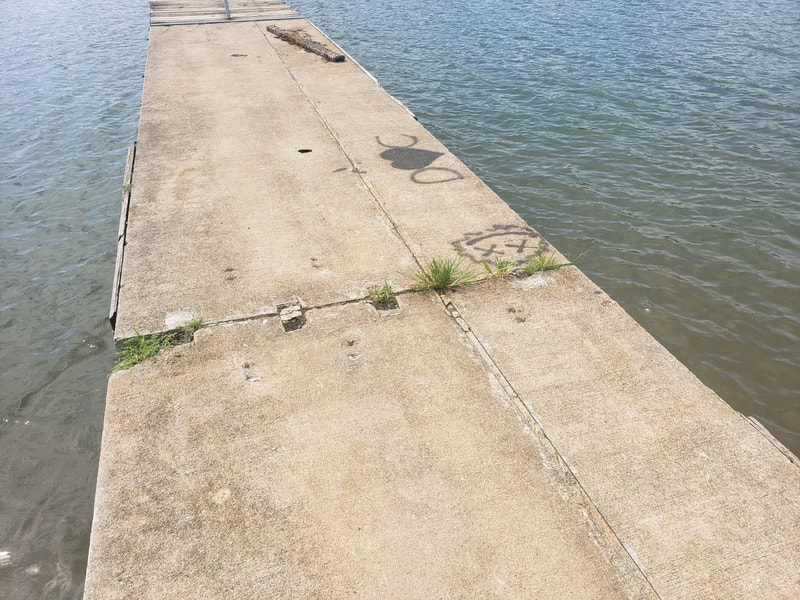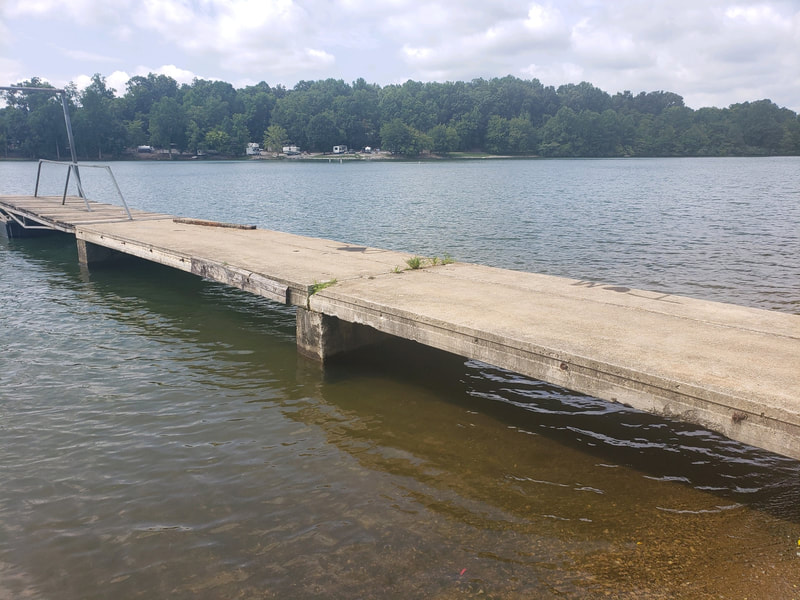The first portion of the dock at the boat ramp is concrete. About halfway across the concrete portion gives way to wood, affixed via large hinges allowing the outer portion to rise and fall with the level of the water.
As we approached the dock, something caught my attention. Halfway across the first portion of the dock, where two seams of concrete mix, several shoots of grass had boldly taken root and began to grow.
I know there are people who firmly believe their houseplants are sentient and will grow better if they are talked to and made to feel love on a daily basis. For my part, though, I seriously doubt if grass can think, let alone communicate.
But let’s posit for a moment that it can. If so, then what I would want to say to it is:
“Good luck with that! What were you thinking? Of all the places you could have taken up residence and put down roots around a reservoir with some 16,000 acres in surface area and over 357 miles of shoreline, why would you ever choose to do so inside a one inch seam amidst two giant slabs of concrete perched several feet above open water?!”
As I have reflected on this little episode, I have been reminded of a story Jesus once told that is recorded in all four New Testament Gospels. Matthew (chapter 13, verses 3-8) recounts it this way…
And He told them many things in parables, saying, “A farmer went out to sow his seed. And as he was sowing, some seed fell along the path, and the birds came and devoured it.
Some fell on rocky ground, where it did not have much soil. It sprang up quickly because the soil was shallow. But when the sun rose, the seedlings were scorched, and they withered because they had no root.
Other seed fell among thorns, which grew up and choked the seedlings. Still other seed fell on good soil and produced a crop—a hundredfold, sixtyfold, or thirtyfold.”
In response to His disciple’s inquiries, He then went on to explain the meaning of the parable (as is recorded in verses 18-23)…
Consider, then, the parable of the sower: When anyone hears the message of the kingdom but does not understand it, the evil one comes and snatches away what was sown in his heart. This is the seed sowed along the path.
The seed sown on rocky ground is the one who hears the word and at once receives it with joy. But since he has no root, he remains for only a season. When trouble or persecution comes because of the word, he quickly falls away.
The seed sown among the thorns is the one who hears the word, but the worries of this life and the deceitfulness of wealth choke the word, and it becomes unfruitful. But the seed sown on good soil is the one who hears the word and understands it. He indeed bears fruit and produces a crop—a hundredfold, sixtyfold, or thirtyfold.”
It seems that grass growing in the seam of a concrete dock is not the only entity with little prospects for growth and life. Apparently, many a well-intentioned but misguided human being has made the same ill-founded decision. And the same fatal mistake!
No, people do not physically plant themselves firmly in such habitats. But they certainly do so spiritually! Jesus’ story is spot on in this regard! As is the proof of His assertion; for one does not have to look far to see individuals whose lives have withered because they lacked genuine spiritual roots!
For my part, I have chosen to plant my soul in what our Lord here calls “good soil”, in order that I can hopefully bear fruit and then produce a bountiful crop for His Kingdom!
What about you? Where are your roots? And what are your prospects for growth and life as a result? Unlike a shoot of grass, you are a sentient creature.
And if you don’t like the answers you have been forced to give to these questions, then maybe now might be a good time to consider uprooting yourself and undergoing a transplant! After all, your life depends upon it!
SCRIPTURE SOURCES: https://biblehub.com/bsb/matthew/13.htm.


